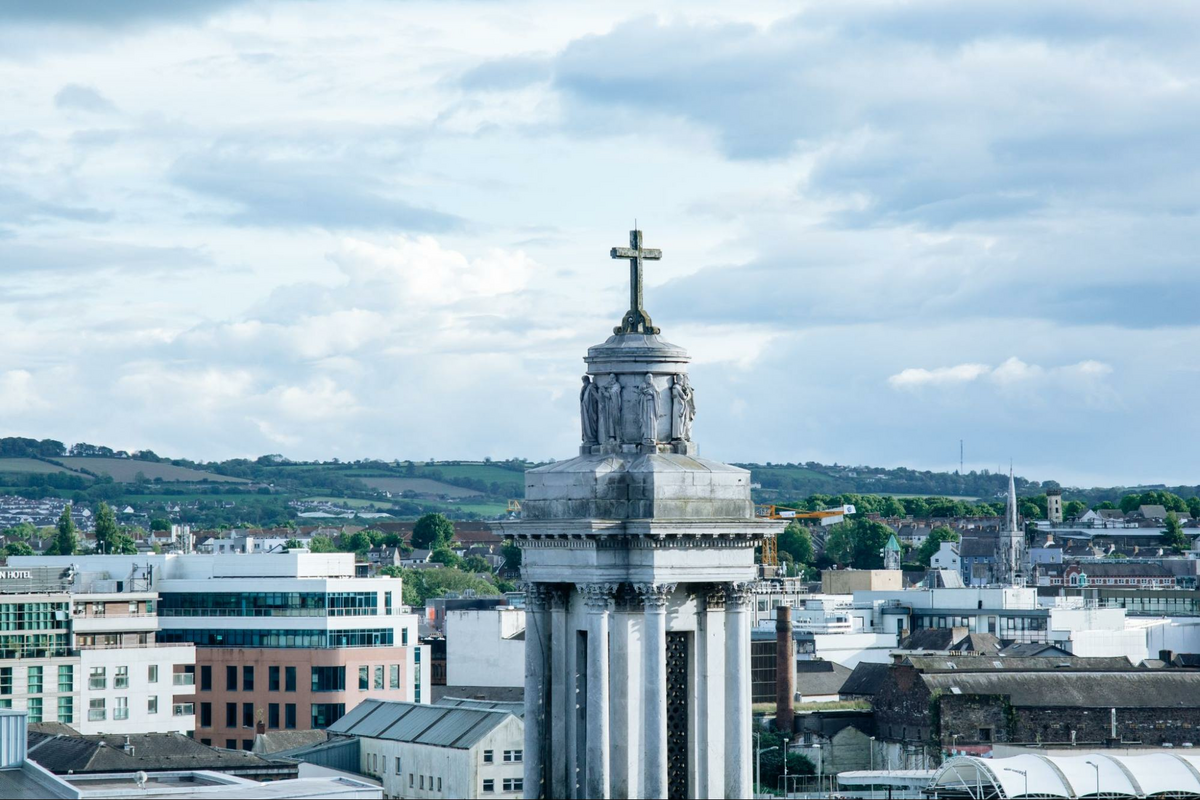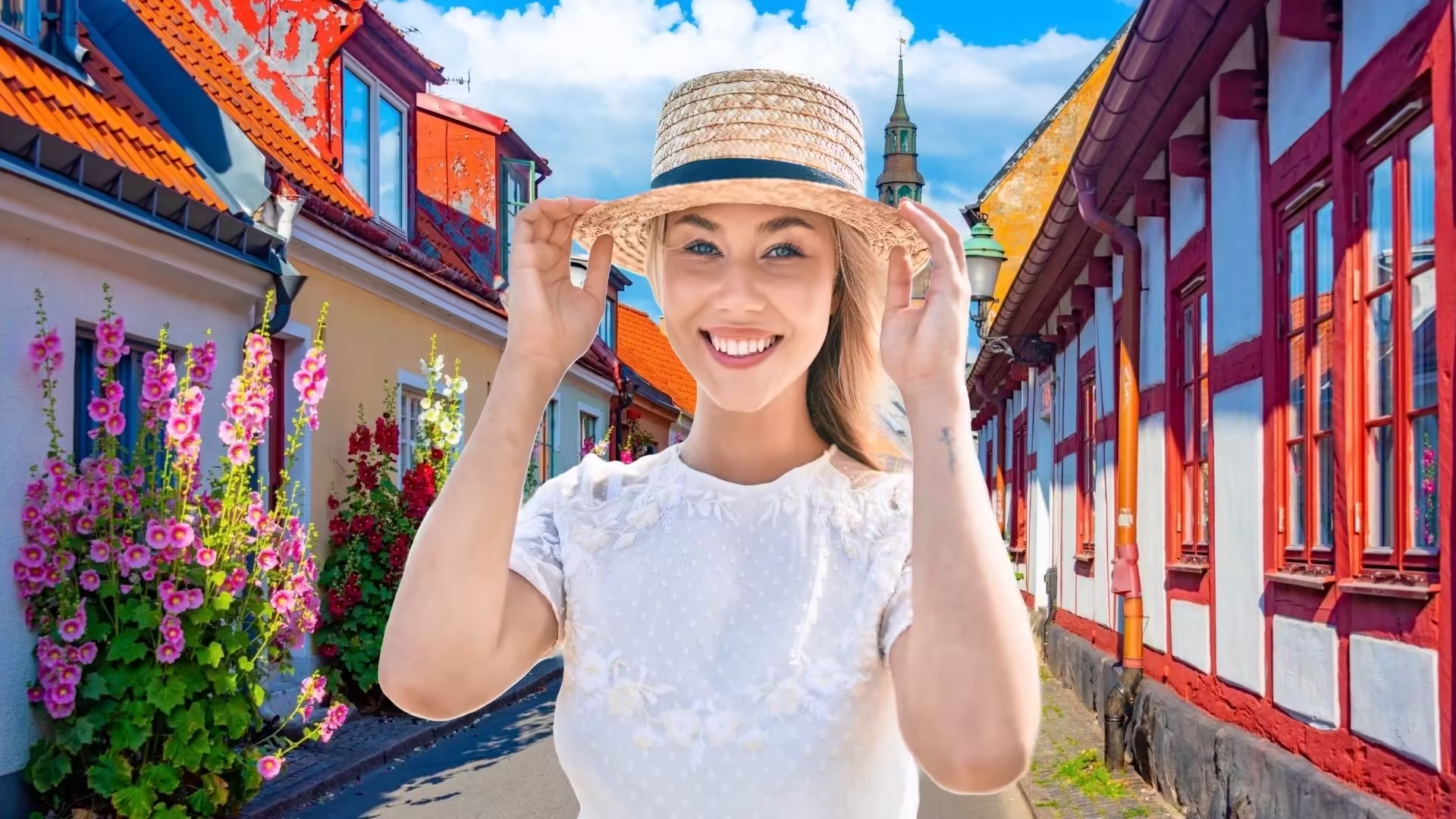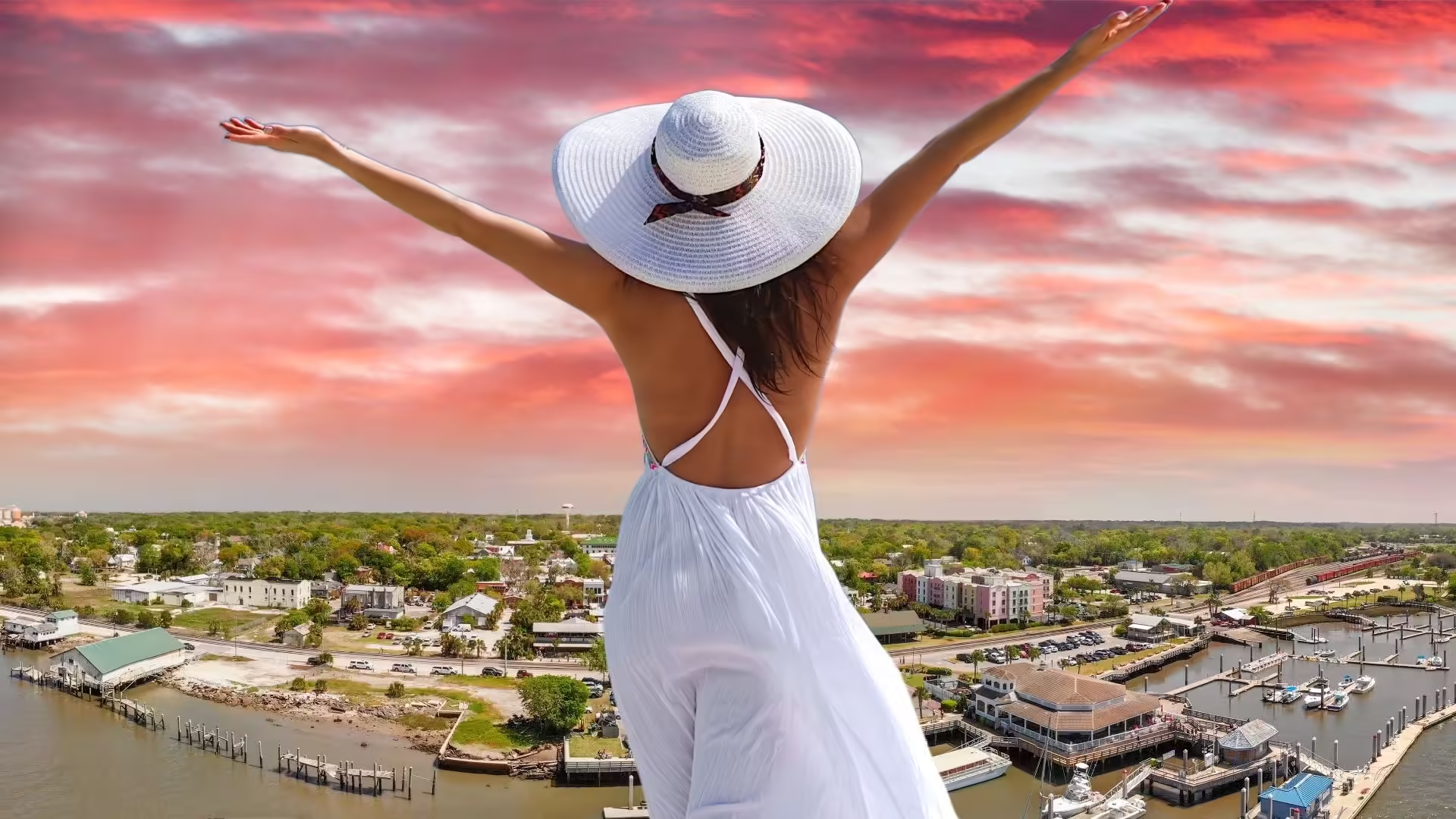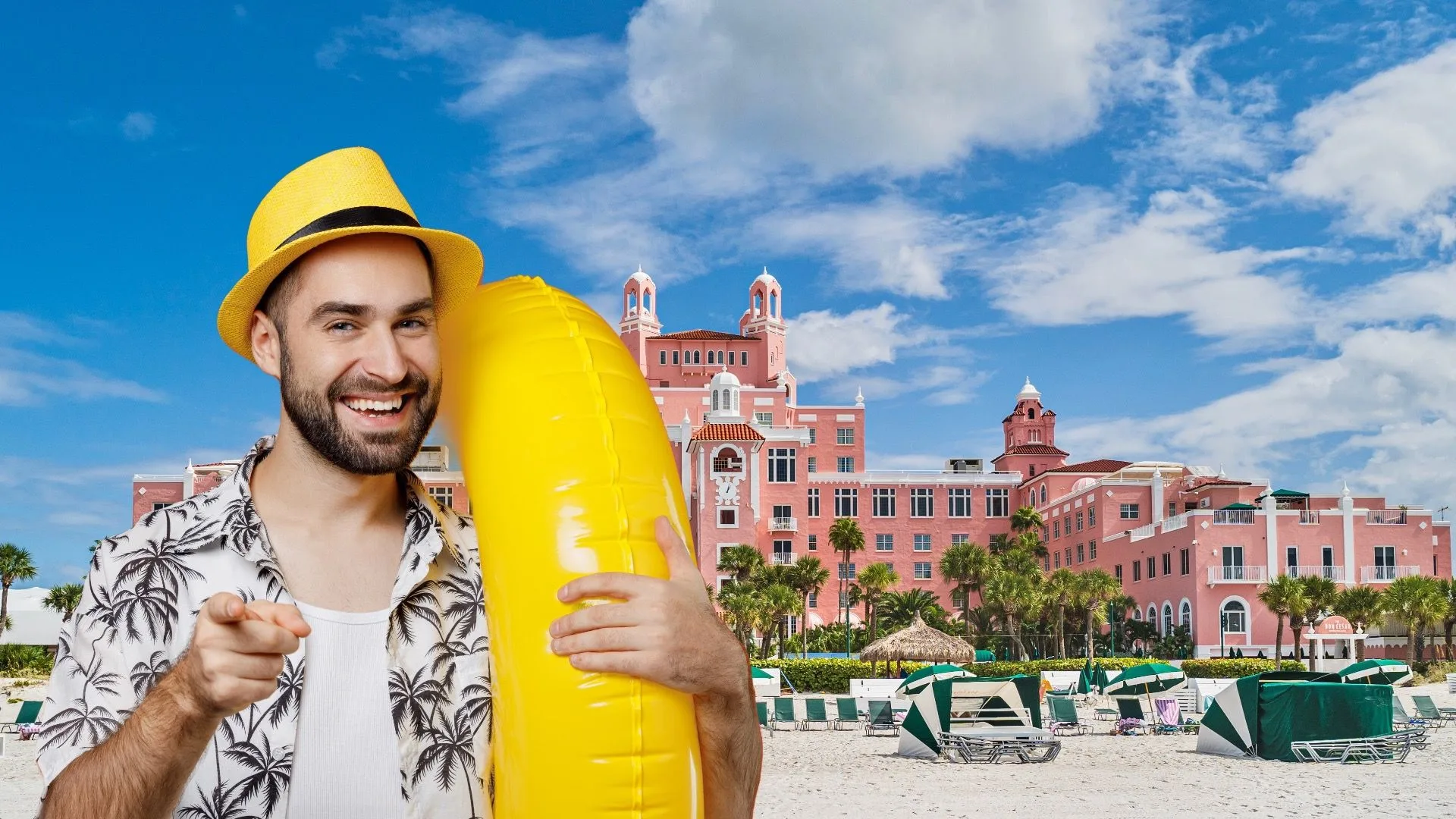
Cork is the second largest city in Ireland, once a 6th-century monastic site and later a Viking settlement located on the marshy banks of the River Lee. Since its Scandinavian expansion, Cork has grown to house a population of 264,000 and attracts residents from all nationalities and walks of life. The city is located within County Cork, around three hours south of Dublin.
Corkonians are fiercely proud of their little city and often refer to it as “the true capital of Ireland,” a phrase that lights up the eyes of any true Cork patriot.
Table of Contents
Toggle- Why I Love My Hometown
- 1. Ring the Shandon Bells
- 2. Visit the Butter Museum
- 3. Shop at the English Market
- 4. See a dance show at the Firkin Crane
- 5. Explore the lush campus of University College Cork
- 6. Walk through Fitzgerald’s Park
- 7. Have a pint at one of Cork’s many heritage pubs
- 8. Visit St Fin Barre’s Cathedral
- 9. Tour Elizabeth Fort
- 10. Take a day trip to one of the neighboring towns
- 11. Have a picnic at the Lough
- 12. Visit the Crawford Art Gallery
- 13. Discover the Blackrock Castle Observatory
- 14. Go shopping along Oliver Plunkett and St. Patrick’s Street
- Venture further afield
Why I Love My Hometown
I moved to Cork in 2021 with no real idea of the city’s history or cultural significance—I wanted to live somewhere small enough that I could walk from one end to the other, but big enough to have lots of events and activities throughout the year.
And I liked that the city’s name reminded me of wine.
With those three criteria forming an informal checklist in my head, I packed my bags and arrived in Cork—and quickly discovered that I had found my way to one of the most delightful towns in Ireland. This list of Cork attractions will take you through the parks and gardens, the historic sites, the foodie hideouts, the museums, and the excursions of Cork City.
Vibrant, bustling, and full of charm, Cork is known as the City of Welcomes and is ready to welcome you over for an unforgettable Irish vacation.
Read More: Best Countries to Visit with Kids

1. Ring the Shandon Bells
One of Cork’s most iconic landmarks is the bell tower of St. Anne’s Church, which overlooks the city from its lofty perch in the historic Shandon district. The church was constructed in the early 1700s, replacing an older medieval church near the site which was destroyed during the 1690 Siege of Cork.
St. Anne’s is famous for its eight bells, and even features in an 18th-century song—climb the stone steps to the first floor, and you can ring the bells yourself!
The Shandon Bells are on a system known as an Ellacombe chiming system, meaning that the bells themselves are fixed in place, and are rung by pulling a rope attached to a hammer, which strikes the bell in the belfry to produce each note. The church even provides sheet music with popular tunes on them, so that visitors can serenade the local townsfolk on their trip to Shandon Bells. Continue up the spiraling stone steps, and you are rewarded with a stunning view of Cork from above.

2. Visit the Butter Museum
If you went shopping for butter in the 19th century, chances are you would have had little difficulty getting your hands on some authentic Cork butter. Cork was the largest exporter of butter in the world at the time, partly due to the cows that lived in the area: they produced more and higher-quality milk than other contemporary cows, while tending to air on the smaller side, meaning they required less food. When the British later decided to crossbreed the Cork cows with their own, larger stock, the resulting offspring did not inherit their forbearers’ legendary milk capabilities—a lesson not to mess with a winning formula!
The Cork Butter Museum takes visitors on a tour of all things butter in Ireland, from the ancient practice of preserving butter in bogs to medieval butter-churning practices to modern Irish butter producers on the market.

3. Shop at the English Market
The English Market in Cork is a sprawling indoor market that connects to several different streets in Cork, giving it a maze-like feel. There has been a market on this site since 1788, and the present market is memorable for its high vaulted ceiling, stained glass, cast iron fountain, and of course, every type of foodstuff you could want when planning tonight’s dinner.
The market hosts a variety of butchers, fishmongers, artisanal cheeses, freshly baked bread and pastries, local fruits and vegetables, and dry goods such as pasta, rice, and lentils sold by weight. There are also a couple of cafes and coffee shops that operate in the market, as well as a wine merchant, an olive stand, health food stalls, and more. The ornamental entrance at Princes Street includes a restaurant on the upper floor, providing a unique dining experience.
In fact, the market has been described as the “stomach and soul of Cork City,” with many of the stalls representing generations of families working in the Market. Buying directly from the stall owner lends a certain familiarity and community atmosphere to your shopping experience that really makes you feel connected to those around you.

4. See a dance show at the Firkin Crane
Why not experience a bit of local culture during your time in Cork? The Firkin Crane, located in a heritage building in Shandon, is the most unique spot in the city to catch a work of performance art. Firkin is a Danish word meaning a quarter barrel, a nod to the theatre’s historic past as the site of Cork’s original Butter Market.
After the market closed in 1924, the building was abandoned, and then burned down, until its complete restoration in 1992, when it reopened as a theater. Today, all sorts of performances can be enjoyed at the Firkin Crane, from dance to poetry readings, art installations, and pantomimes. There are also classes and workshops available for those who want to give it a go, themselves.

5. Explore the lush campus of University College Cork
Cork is a college town, with its university founded in 1845 under the endowment of Queen Victoria. The campus, located in the south-western quadrant of the city, and just across the road from Fitzgerald’s Park, is iconic for its regal stone “Long Hall” building, which is adorned with ivy.

Just inside on the ground floor, visitors can admire the prehistoric ogham stones (pronounced “ome”) that line the walkway of the Long Hall. Ogham is the ancient writing system for Old Irish, usually marking place names or memorializing the patronage of a king or chieftain.
Signs on the wall explain the alphabet of ogham characters so that viewers can practice writing their own name in ogham, a fun, personal souvenir from your time in Cork.

The River Lee also runs through campus, with a peaceful nature walkway following its course, a spot where students can be often found taking a stroll between lectures, or during the summer months. The path concludes at the main entrance to campus, where two majestic weeping willows trail their long branches in the water.

6. Walk through Fitzgerald’s Park
Leaving UCC, we cross the road and head down Mardyke Walk to arrive at Fitzgerald’s Park, a 12-acre park sporting curated gardens, a sculpture trail, meandering paths, a quaint café, the Cork Public Museum, and a large children’s play area that is a favorite of families in the summer.
Not far away from the park was the site of a major Irish Iron Age discovery, the mysterious decorated iron horns now known as the Cork Horns, which can be found on display at the Cork Public Museum in the park. The museum is a great way to learn about Cork’s history, from prehistory through to the war for Irish independence.
Also around the corner from Fitzgerald’s Park is Daly’s Bridge—more commonly known as “the Shaky Bridge” for its unnerving tendency to sway from side to side whenever someone runs across it. Adults may prefer to keep their feet on solid ground, but children delight in the unusual nature of the Shaky Bridge, so don’t be surprised to hear shrieks of delight coming from its direction on a nice day!

The Cork City Gaol is also visible from Fitzgerald’s Park and within walking distance, the historic old jailhouse is now open to the public as a museum. A self-guided tour is available, telling the morose tale of some of Cork’s historic, imprisoned citizens.

7. Have a pint at one of Cork’s many heritage pubs
The Cork Heritage Pub Trail celebrates fourteen pubs that have been a part of the Cork landscape for generations, including such famous establishments as Sin É, The Oval, Mutton Lane, The Old Town Whiskey Bar, Crane Lane Theatre, and many others.
Those who enjoy live music will delight in the traditional Irish sessions which take place seven nights a week at Sin É, if you’re lucky enough to find a spot to sit! These are all excellent spots to have a pint of Beamish, the local Cork answer to Guinness, and the best way to impress residents with your refined tastes. Ask for a Taytos (potato chips) while you’re at it, and you’ll be well on your way to becoming a proper Corkonian.

8. Visit St Fin Barre’s Cathedral
Christianity has been at the heart of Cork’s historical past, as the Irish saint Finbarr founded a monastery here in the 7th century AD. The original monastery survived until the 1300s, but the cathedral currently sitting on the site is a late 19th century, Gothic construction overseen by the Victorian architect William Burges.
St Fin Barre’s Cathedral is constructed mainly from local stone, with some 800+ sculptures adorning the building inside and out. Even the stained glass windows were designed by Burges, who made sketches for each of the 74 windows seen in the cathedral today. Guided tours are available every hour between 10 am and 5 pm, which include the cathedral itself, the grounds, and an introduction to the labyrinth.

9. Tour Elizabeth Fort
Located just off Barrack Street, Elizabeth Fort is a 17th-century star-formation fort built outside the medieval walls of Cork. The site is now a tourism heritage site, with free admission. Walking along the battlements, visitors can enjoy the unparalleled views of Cork city, while a self-guided audio tour is available in English, French, German, Italian, Irish, and Spanish, telling of the fort’s history throughout its long lifetime.
Inside, there is an exhibition on famous women of Cork, including those of women prisoners who were arrested for crimes as minor as stealing a single handkerchief.
10. Take a day trip to one of the neighboring towns
Cork has several notable neighbors, and all are easily accessible by rented car, bus, or train for a fun day trip from the city center.
Cobh
Hop on the local train from Cork Kent train station to Cobh, where you can see the brightly-painted houses known as the “Deck of Cards” back-dropped impressively by the Cobh Cathedral. Cobh was also the last spot where the Titanic docked before embarking on its fateful north-westerly journey, and the Titanic Experience in Cobh takes visitors through a summary of that final anchorage.
Tourists can also take a short boat journey over to Spike Island, once the site of a monastic settlement and later reimagined as a defensive 18th-century fort, located in the Cork Harbour. The popular Fota Wildlife Park is also located along the train journey to Cobh, featuring 100 acres of free-roaming animals, from wallabies to zebras.
Kinsale
Heading south from Cork instead, hop aboard the 226 or 228 bus out to Kinsale, the coastal town that marks the start of the Wild Atlantic Way, a 1,553-mile scenic drive along the western coast of Ireland. In the summer, these buses fill up quickly with city residents looking to cool off with a dip in the sea, so it is recommended to start your day early when visiting Kinsale. Enjoy a relaxing afternoon at the beach before heading into town for an exploration of Kinsale’s many boutique shops, galleries, and bookstores.
Blarney Castle
Cork is also within public bus access of Blarney and Blarney Castle, famous for its castle, gardens, and of course, the Blarney Stone. “Blarney” itself is a term that means beguiling but misleading talk, and legend states that kissing the Blarney Stone endows the kisser with “the gift of the gab,” meaning great eloquence, or skill at flattery. The Stone is a popular tourist attraction, but kissing it is no easy task—participants must climb to the top of the castle, and then lean backward off the parapet edge to reach the Stone. Before safeguards were put in place, the kisser had to be physically grasped by the ankles and dangled out into the open air to reach the Stone!

11. Have a picnic at the Lough
Southwest of the city center, and a short bus ride or walk from town, is the Lough, a large lake full of waterfowl, fish, swans, and other wildlife. This is a popular spot for summertime picnics or a peaceful stroll in the late afternoon.
Legend states that the Lough was actually once the spot of an ancient village and that those with keen eyesight can spot the tops of the old towers underneath the rippling water. While the legend may be little more than fiction, it is nonetheless a popular spot amongst locals and a great escape from the bustle of town on a nice day.

12. Visit the Crawford Art Gallery
The Crawford Art Gallery is a public art gallery and museum with rotating exhibitions alongside its permanent collections and is free to enter. The gallery is housed in the former Cork Customs House, built in 1752, which boasts an impressive red brick facade and stately interior.
Corkonians delight in checking out the latest collections to grace the gallery, and then popping into the on-site cafe afterwards for a coffee and a treat.

13. Discover the Blackrock Castle Observatory
Blackrock Castle was built in the 16th century as a watchtower and fort to guard Cork Harbour against invaders and pirates and now hosts an incredible space and history exhibition. Free guided tours of the castle are offered to visitors between 10 am-1 pm, but booking ahead of time is essential.
From the top of the castle, the panoramic view of the River Lee is your reward, and rowers from the local Rowing Clubs can usually be spotted cutting across the waters of the river as they train. Just next to Blackrock Castle Observatory is the Castle Cafe, a haven for foodies and warm respite on a cold day. Blackrock itself is an elegant neighborhood of Cork and can be accessed via bus, or by bike along the Marina Greenway. In summer months, it is common to see locals lounging along the little cove that marks Blackrock, nibbling on treats purchased at the nearby cafes and coffee shops. On select weekends, a farmer’s market pops up on this spot, as well.

14. Go shopping along Oliver Plunkett and St. Patrick’s Street
Whether you’re looking for a luxury souvenir or just interested in window shopping, the two main shopping streets in Cork City are happy to welcome you.
Oliver Plunkett is the pedestrianized thoroughfare through Cork, dotted with cozy Irish pubs, local eateries, and a wide array of shops including musical instruments, stationery, chocolatiers, art supplies, clothing, and much more.
For those who want to spend a little more cash, St. Patrick’s Street marks the high fashion corridor through Cork, and cuts directly through the city’s center. St. Patrick’s Street has an interesting history, as it used to be a canal that bisected Viking and medieval Cork. Cork was once known as “a safe harbor,” as ships would sail into the canal during the day, and at night gates would seal off the canal, meaning that no nefarious forces could attack your ships while you slept.

Now, the only threat of attack comes in the form of pranks…at the top of St Patrick’s Street, just across from the visitor center, stands the statue of Father Matthew, who frequently can be found sporting a traffic cone for a hat. Who this prankster is, and how they manage to scale the statue unseen to adorn the man with his fashionable hat is unknown, but the sight of Father Matthew freshly crowned brings a sly smile to the face of every Corkonian.

Venture further afield
From Cork City, many other beautiful locations can be reached by bus, car, or train. In the summer months, locations such as Killarney National Park, Beara Peninsula, Mizen Head, Gougane Barra, and Dursey Island are must-sees.
Head west of Cork city and discover the wonders of West Cork, whose scenic beauty is unmatched.
Those interested in renting a car can drive the Ring of Kerry, located just north of County Cork, or check out the walking trails and cliff hikes available in the region. I hope these travel tips have inspired you to consider a vacation to Cork, and will keep you coming back for more.
The post 14 Unforgettable Things to Do in Cork City, Ireland appeared first on She Buys Travel.






